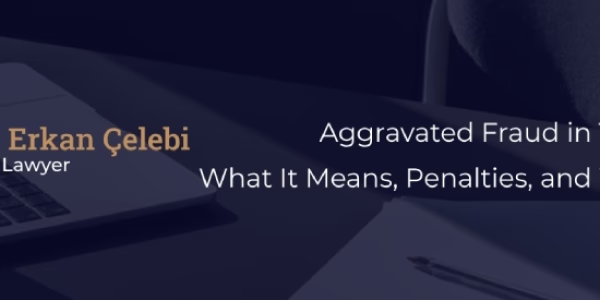Introduction
On May 29, 2025, the “10th Judicature Package” amended Turkey’s Penal Code (Law No. 5237) with two key changes:
- Allowing certain serious crimes committed abroad to be tried in Turkey (Article 13)
- Immediate deportation of foreign convicts who complete sentences of two years or more (Article 59)
Below, we’ll explain these changes and what they mean in practice.
Table of Contents
Extraterritorial Application (Article 13)
(1) The following crimes, when committed abroad by a citizen or foreigner, shall be subject to Turkish law:
a) Crimes listed under Book Two, Part One.
b) Crimes in Chapters Three through Eight of Book Two, Part Four.
c) Torture (Articles 94–95).
d) Willful pollution of the environment (Article 181).
e) Manufacture or trafficking of narcotics or stimulants (Articles 188, 190).
f) Counterfeiting currency (Article 197), producing tools for forging currency and seals (Articles 200, 202).
g) Prostitution (Article 227).
h) Bribery (Article 252).
i) Hijacking or unlawful seizure of ships, trains, or aircraft (Article 223/2–3) or damage to such vehicles (Article 152).
(2) Prosecution in Turkey for these crimes requires permission from the Minister of Justice.
- What changed?
Now, if a foreign national commits any of these crimes abroad and is found in Turkey, they can be tried under Turkish law. - How it starts: The Minister of Justice must approve opening the case.
If you wish, you can access the full English translation of the complete legislation here: https://www.celebilegal.com/turkish-penal-code/
Deportation Rule (Article 59)
- Basic rule: Foreigners sentenced to two years or more must be deported immediately after completing their sentence.
- Steps in practice:
- Transfer to the immigration office upon release
- Revocation of passport/ID
- Coordination with the relevant consulate
- Right to appeal: You can file an annulment case with the administrative court within 15 days of release.
Frequently Asked Questions
You can submit a written request or email directly to the Ministry of Justice outlining the details of the alleged crime. Make sure to include any evidence you have and provide your contact information for follow-up.
You have 15 days from your release date to file an annulment case at the administrative court. A Turkish criminal lawyer can prepare and submit the appeal on your behalf to ensure it meets all legal requirements.
The entire process—from initial reporting to final judgment—can take anywhere from 6 to 12 months, depending on evidence gathering and court schedules. Fees vary based on case complexity; an initial consultation with a Turkish criminal lawyer will give you a clear estimate.
Scope of Article 12
- One-year minimum: Crimes committed abroad with a minimum one-year sentence can be prosecuted in Turkey.
- Victim requirement: If the victim is a Turkish citizen or Turkish-registered legal entity, their complaint is enough. For foreign victims, the Minister’s approval is required.
Practical Challenges
- Evidence gathering: Translating and legalizing foreign documents can delay proceedings.
- Appeal delays: Administrative appeal decisions sometimes take months.
- Sample case: In 2018, two Turkish nationals carried out a bank robbery in Norway. One was tried and convicted there, while the other fled to Turkey. Under Article 13(1), both were prosecuted in Turkey, and the Turkish court tried them separately—sentencing the second defendant to 12.5 years’ imprisonment. This case is examined in detail in the academic paper “Considering Foreign Law in Criminal Law”.
Conclusion
By extending its jurisdiction to certain overseas crimes and streamlining deportation, Turkey aims to protect both victims and the rights of the accused. If you need professional support, visit our Turkish law firm page to learn more and get in touch.
- Author Av. Baris Erkan Celebi
- Barış Erkan Çelebi Founder of Turkish law firm
Contact Form
Baris Erkan Celebi is an English-speaking Turkish lawyer who exclusively represents foreign investors in Turkey. His law firm in Turkey specializes in providing international investors in Turkey with reliable legal counsel and personalized business solutions.






